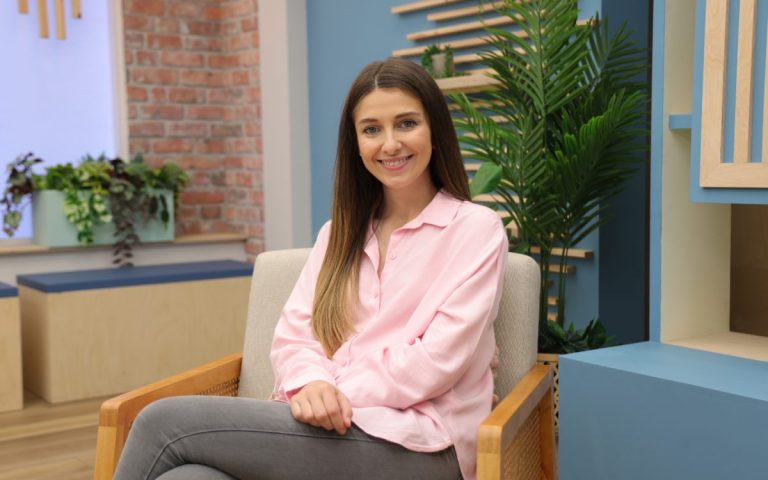Amy Knight is a 28-year-old, disruptive entrepreneur, owner, founder and Director of Must Have Ideas, a leading UK e-commerce company generating an annual turnover of £65 Million. Specialising primarily in problem-solving household products, what started with packing orders on her dining room table and storing stock in the spare room has evolved into a thriving business with a 40,000 square ft distribution centre in Kent.
Company: Must Have Ideas
We are thrilled to have you join us today, welcome to ValiantCEO Magazine’s exclusive interview! Let’s start off with a little introduction. Tell our readers a bit about yourself and your company.
Amy Knight: I’m Amy Knight, a 28-year-old entrepreneur, owner and Director of Must Have Ideas, one of the UK’s fastest-growing e-commerce businesses. Our business specialises in unique homewares and garden products that you won’t find in your local supermarket. We don’t just sell products; we sell solutions that make everyday jobs around the home easier.
We launched in 2018 and the first product we sold was actually discovered by accident. It was an antibacterial silicone sponge we found while on holiday, which we named Hygiene Hero. With an initial investment of £3,000 from myself, my husband Rob Knight, and our friend Chris Finch, we purchased 1,000 units, quickly selling out.
Today, Must Have Ideas offers hundreds of products, employs over 200 people, and dispatches around 8,000 orders a day from our Kent-based distribution centre just outside London. Our annual turnover is now £80 million.
What were the most significant challenges you faced during the scaling process, and how did you overcome them?
Amy Knight: Stock forecasting was a real challenge. We needed to order enough to grow, but too much meant we could have been left with unsold stock. Too little and we’d sell out and miss revenue opportunities. Since we never had outside investment, cash flow was a major concern, leaving very little room for error. It was a constant balancing act. Once we identified which products were strong sellers, growth became much quicker and easier.
How did you ensure that your company culture remained intact as your business expanded?
Amy Knight: Building a team that understands our business philosophy and story is really important to us. You can teach skills, but the right attitude and fit are harder to find. We’ve worked hard to bring in people who are positive, aligned with our values and genuinely understand our brand and goals.
We’ve introduced several team perks, including free breakfast, monthly free products, free on-site EV charging and birthdays off. We also throw big parties in summer and at Christmas and hold various social events during the year. We offer flexible working hours and we pay a real living wage. It’s not just an ethical choice; it also helps keep our team motivated and helps us attract the right people.
We’ve made a point of sharing our success with our team so committing to a livable wage was an easy decision. It motivates people and makes a real difference to their everyday lives.
We’re also working on delivering even more perks, including private healthcare, electric car leasing, cycle to work schemes, season ticket loans and increasing the duration of maternity and paternity pay.
As founders raising young children ourselves, we’ve built a family-friendly working environment with flexibility for working parents. Our team care about the business because they know the business cares about them. That has helped us build strong teams, improve efficiency and reduce the cost and disruption caused by staff turnover.
What strategies did you employ to maintain quality and customer satisfaction while scaling rapidly?
Amy Knight: To stand out in the highly competitive world of e-commerce, we introduced three key policies: a two-day delivery promise or the order is free, hassle-free returns and a 100-day no-questions-asked money-back guarantee. These policies helped set us apart and gave us a competitive edge.
We put a lot of effort into making sure every customer feels looked after and valued. This approach drives revenue, positive reviews and has gained us a loyal customer base. Our in-house customer service team is available seven days a week by email, phone, online chat and even by post. We made a conscious decision not to outsource customer service, instead taking the time to train and empower our customer service agents to make independent decisions, something that is not possible when you’re reading from a script. We believe traditional customer service still matters, and we know this approach is central to our success.
We also love giving back to customers. We do this through giveaways, competitions and surprise discounts. It keeps things fun and shows our appreciation – plus, it’s a great way to build an engaged, loyal community.
Can you share a specific turning point that was crucial for your business’s successful scaling?
Amy Knight: Very early on, we used data to identify our target audience and refine our messaging. Once we understood what resonated, we began to grow through targeted ad campaigns.
That’s because marketing is about more than visibility. It’s about getting the right people to take action. Many businesses waste money on ads that bring in traffic well, but that traffic doesn’t convert. Why? Because they haven’t identified their audience properly. If you don’t understand why someone would choose your brand over another, then you’ll struggle to get any momentum.
How did you manage the financial aspects of scaling, particularly in securing funding and maintaining cash flow?
Amy Knight: Cash flow is a major issue for companies that scale quickly, and we had to monitor it closely. The global shipping delays caused by COVID saw container prices rise sharply, putting pressure on both cash flow and margins. So, flexibility was essential. We made the decision to suspend shipment of our larger products until things settled down. This experience taught us the importance of agility and having contingency plans in place for unforeseen disruptions. You can’t predict everything, but if you stay focused and adaptable, you can come through tough periods.
Many e-commerce companies rely on lifetime customer value to reach profitability. That is not how we operate. We focus on being profitable with every order. We also do everything in-house, including content creation, ad management, fulfilment and customer service. This helps us retain more profit and gives us full control over our business.
At the end of the day, our success comes from solving real problems for real people, maintaining a customer-first approach, and scaling profitably and sustainably.






